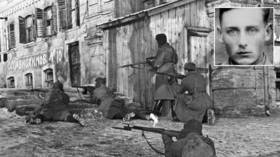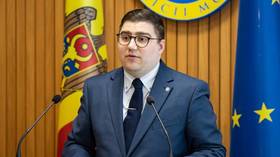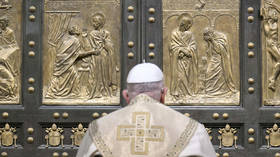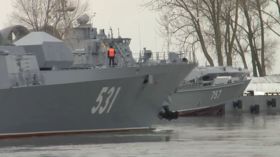Russia could designate German murders as 'genocide'
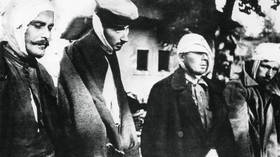
Prosecutors in Russia's Rostov region have moved to officially designate the 1941-1943 Nazi occupation of the territory as a "genocide," citing the murders of more than 126,000 civilians and prisoners of war.
Officials have prepared a petition to the court at the direction of Russia's Prosecutor General Igor Krasnov, whose office posted the announcement on its website on Monday. The article lays out the suffering that Rostov, in southwestern Russia, endured during the years of occupation, when Nazi enforcers took control following the Wehrmacht's conquest of the region during Operation Barbarossa.
The statement reads: "the Prosecutor of Rostov Oblast has prepared and signed a petition to the Rostov court to recognize the crimes that have been identified, and once more uncovered, as war crimes, crimes against humanity, and genocide of the Soviet people, inflicted by the German Fascist occupiers in the years of the Great Patriotic War [World War II] on the territory of Rostov Oblast."
The Nuremberg trials, which took place following the Allied defeat of Germany, determined that Nazi leaders had, according to international law, committed war crimes, and Soviet authorities prosecuted occupiers and collaborators for decades after Berlin's unconditional surrender.. The trials led to important developments in the categorization of crimes, and it was the first time in international law that the word "genocide" was used.
Prosecutors at Nuremberg cited "the extermination of racial and national groups, against the civilian populations of certain occupied territories to destroy particular races and classes of people and national, racial, or religious groups, particularly Jews, Poles, and Gypsies and others."
With the current petition, Russia's Prosecutor General is seeking to expand recognition of Nazi crimes to include the "genocide of the Soviet people," which is not generally understood as a part of the Holocaust. At the same time, Russian authorities have been undertaking new research into the occupation, including uncovering mass graves.
Last year, Moscow requested that Canada deport Helmut Oberlander, a 97-year-old accused of working as an interpreter for a Nazi death squad in the Rostov region during the Holocaust. According to investigators, Oberlander, who moved to Canada in 1954, interpreted for an Einsatzgruppen unit that killed 27,000 people over the course of a year and a half.
